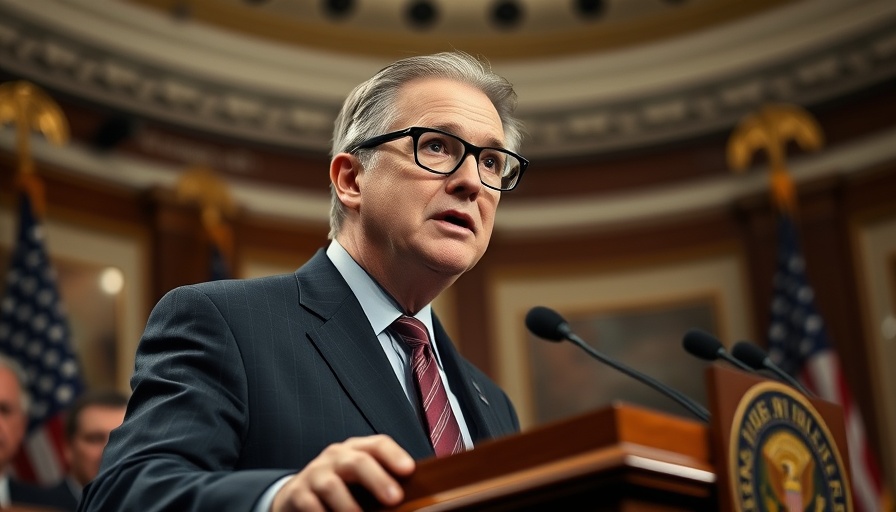
Divisions Among House Republicans: The Tax and Medicaid Dilemma
On a tense early morning in Washington, cheers erupted from Republicans as the House Ways and Means Committee approved President Trump's latest tax cuts package after an all-nighter of fierce debates. Yet, despite this small victory, divisions within the party are becoming apparent, marking a complicated path forward in legislative processes.
Understanding the Standoff
House Speaker Mike Johnson (R-La.) spent countless hours negotiating as various factions of the Republican Party grapple with differing perspectives on the proposed package. The Freedom Caucus, representing the more conservative wing of the party, feels that the new requirements for Medicaid cuts are insufficient. “We have a significant number of us who could not bless this product,” said Rep. Chip Roy (R-Texas), highlighting the deep fissures within his party.
Parallel to this, Republican lawmakers from high-tax states, particularly from New York, are expressing concerns over the state and local tax deductions (SALT), insisting that any support for the bill hinges on deeper deductions that benefit their constituencies.
A Strained Majority: Balancing Perspectives
With a slim majority in the House, Johnson cannot afford to lose too many votes if he wishes to steer this ambitious $5 trillion tax package to passage. The potential fallout from defections within his party may endanger Trump's legislative agenda for his second term, making it imperative for Johnson to mediate between the diverging views within the GOP.
Democratic Opposition Intersects with GOP Chaos
As Republican leaders work through their disagreements, Democrats have not been passive bystanders. They launched marathon public hearings to critique the package, branding it a “give-away to the wealthy” while jeopardizing critical safety nets that millions rely on. The continuous opposition is mounting pressure on GOP representatives who might still waver in their support.
Future Implications for Tax Policy and Medicaid
The implications of the proposed tax breaks and Medicaid cuts could resonate beyond immediate politics. Current debates reflect broader issues about wealth inequality and the role of government in public welfare. With potential budget cuts to essential social programs such as food stamps and green energy initiatives, the GOP's trajectory presents a pivotal moment for American social policy.
What's Next? A Legislative Tightrope
The upcoming days will be crucial as the Budget Committee prepares to stitch together the sprawling package and address the controversies that lie at its heart. The success or failure of the plan may set the tone for the remainder of Trump's term and impact how both parties approach tax and health policy leading into the next election cycle.
Final Thoughts: What This Means for You
For constituents in Central Florida and across the nation, the outcome of this legislation is vital. Tax breaks could mean more money in pockets, but cuts to Medicaid and welfare programs may impact access to essential services. Families, retirees, and those in need will feel the reverberations of these discussions, showcasing the need for awareness in voting and civic engagement.
As residents of Central Florida, engaging in local news and current events, understanding how these national debates shape our community can help you make informed choices that affect your family and neighbors. The dividends of these political decisions can have long-lasting effects, emphasizing the importance of civic participation.
 Add Row
Add Row  Add
Add 






Write A Comment